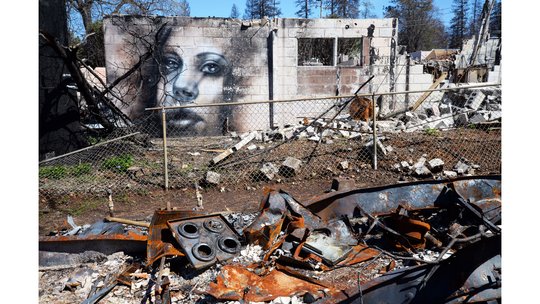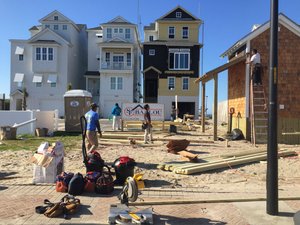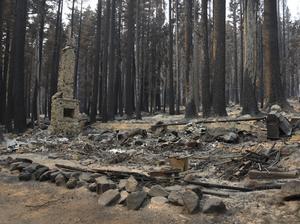
Locally managed nonprofit Blue Forest has launched a $12 million financing facility to fund forest fire prevention and forest resiliency projects in the West.
Blue Forest finances forest restoration projects that are planned, approved and permitted to get them done faster by making money available to project managers to stem wildfire danger and watershed destruction.
"This isn't a science problem, this is a finance problem," said Zach Knight, Blue Forest CEO.
Knight is based in Sacramento and is co-founder of the nonprofit public benefit company that has about 30 employees around the country.
Wildfires in the West in the past decade have burned through huge swathes of forest, and in some years, burned through suburban areas and even some towns.
Blue Forest works with foundations, government agencies, utilities, water agencies, private companies and other groups that can benefit from forest projects actually getting done.
Some of these projects take years to get permits, and even then, they don't have funding, Knight said.
Blue Forest combines the money that multiple agencies and groups have and augments it with investor money to get projects done. Blue Forest then returns a modest income to the investors, along with the benefits of the work to the water agency, local government and the U.S. Forest Service.
Most of those entities have pools of money for projects, but they pay over time after the work is completed. To get the work done, and to pay the crews on the ground, Blue Forest operates a revolving loan fund that pays for the work.
Blue Forest doesn't do the work, rather it supports a local nongovernmental agency with financing to run the work and pay contractors.
Blue Forest is supported by grants, federal agencies, foundations and investors, Knight said. It partners with the U.S. Forest Service and the World Resources Institute, and it has university research partners.
Its first project was the Yuba Project in the Sierra Nevada northeast of Sacramento. The Yuba Project's investors included The Rockefeller Foundation, the Gordon and Betty Moore Foundation and Calvert Impact Capital Inc. The Yuba Project, which has been ongoing for five years, is a 14,545-acre demonstration that includes part of the Tahoe National Forest in the Yuba River watershed.
The first project to be financed with Blue Forest's new tranche of money will be in Oregon. It's seeking to replicate the Yuba Project's effort, but this time on about 80,000 acres, Knight said.
"We want to show that it can work on scale," he said.
Knight said Blue Forest eventually hopes to have multiple funds running large projects concurrently.
"We will probably be doing this for 20 or 30 years," he said. "It will take a long time to fix over 100 years of fire suppression."
Billions of dollars of potential investment capital seeking sustainable projects is not deployed because of a lack of investment opportunities in the sector, Knight said. Blue Forest seeks to create a replicable model to tap into that money to create financial structures that allow investors to invest in watershed restoration and forest health projects.
Blue Forest calls its investment vehicle a Forest Resiliency Bond, or FRB, although it isn't technically a bond. Instead, it is a revolving loan facility, Knight said. Blue Forest uses the FRB name because the mechanism is similar to Social Impact Bonds, which investors are more familiar with. Social Impact Bonds shift risk from social service providers to investors, who are willing to invest in a successful outcome.
Knight was a bond trader in New York for nearly a decade. He then went on to earn an MBA at the University of California Berkeley Haas School of Business. Blue Forest was born out of a business school project by Knight that won a Morgan Stanley Sustainable Investing Challenge in 2014.









